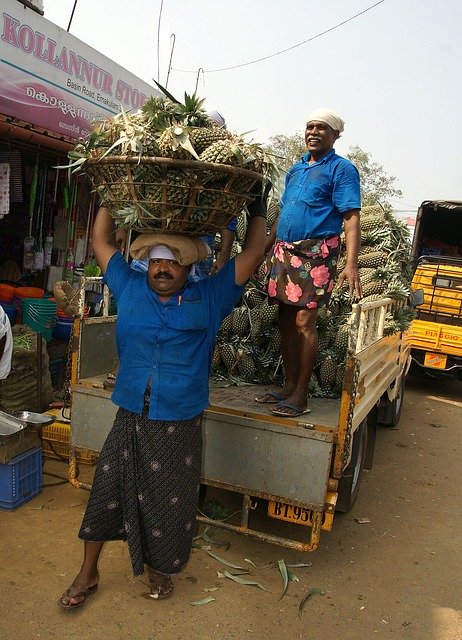
[the_ad_placement id=”adsense-in-feed”]
 By Venkatesh Raghavan*
By Venkatesh Raghavan*
Mumbai: It’s a sad time for the small businesses in the island city with the departure of scores of daily wage earners and lowly-waged workers who were carrying out manual work and assisting in transport services be it vegetables or other agricultural produce or say even packaged food items like bottled jam or wafer bags. The markets that used to be once flooded with goods, be it malls or retail outlets, is now faced with closed shutters and scarce supplies where buyers queue up to get their regular stock of domestic use items.
This is the story everywhere, be it suburban Andheri or Centrally located Dadar. People find it difficult to get their daily supplies of staple food or snacks like the now popular brown bread or say biscuits. The aged people too are forced to stand in queue till their turn arrives. Says one old-time vegetable vendor in Matunga, another central suburb of Mumbai, “Our business has reduced by more than 50% as the wholesale markets in Vashi supply lesser stock and the prices of vegetables like tomato, potato, cabbage and so on have taken an upward spiral. This has also severely affected our bottom-lines.”
[the_ad_placement id=”content-placement-after-3rd-paragraph”]
During normal times, trucks used to visit the wholesale APMC market in Vashi and unload the perishable agricultural produce at different spots of Mumbai. It may be a 30 km ride or in some cases even 50 km. The perishables used to come in bulk and the sales were always brisk. At times, people who were regular visitors used to bargain hard. With the advent of the lockdown era, bargains are unheard of and special announcements are made as to where the vegetables and fruits will be ready for purchase for people in the locality.
The supply chains across the city have been worst hit, with many migrant labourers leaving for their hometowns in Uttar Pradesh, Bihar and elsewhere. For instance, the Irani restaurant owner Koolar & Co. in Kings Circle area of the city, the owner Amir is stuck as his manager cum waiter Shamshu has fled to his home town in Konkan and there are no signs of his coming back any time soon. “Even my full-time waiter Abdul, who stays in Kurla will not be able to make it as transport is very sparse. The hotels in the circle are operational only for delivering parcels to people who queue up to buy snacks or meals. In our case, it’s difficult even to operate for just delivering parcels due to shortage of staff,” concluded Amir.
For businesses under the MSME category things are still worse. With most migrants having returned to their native villages, it will be a good three months before they return, discloses Sattar, owner of a metal welding shop. The problem created by reverse migration has also affected the availability of auto rickshaw and taxi drivers as most of them have returned to their homes in the northern heartlands.
Hotels, lodges, parks, gyms, saloons, fast food outlets, malls, grocery stores, electronic hardware and software vendors are all alike faced with a seeming endless nightmare. The Maximum city which was one of the most loved for its nightlife and entertainment industry is today descending into a pall of gloom.
*The writer is a senior journalist
[the_ad_placement id=”sidebar-feed”]





